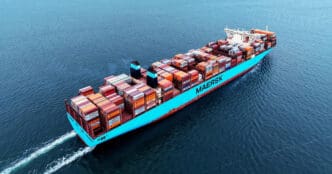Recent evaluations spotlight concerns about the economic strategies of the United States and their global repercussions. Analysts indicate that the emphasis on tariffs during President Donald Trump’s administration may have inadvertently expedited China’s economic ascension. While these tariffs were aimed at correcting trade discrepancies, critics suggest they may have weakened the U.S.’s competitive position, potentially ushering in what is being termed the “Chinese Century.”
The report points out that these protectionist measures, centered on tariffs, did not sufficiently tackle fundamental structural challenges within the U.S. economy, such as the need for innovation, infrastructure enhancements, and educational reforms. In contrast, China has steadily increased its global economic influence by investing significantly in technology, manufacturing, and international collaborations.
A Tale of Two Economies
How U.S. Tariffs May Be Paving the Way for the “Chinese Century”
Diverging Strategic Paths
United States’ Focus
Emphasis on Tariffs
Neglected Structural Issues:
- Need for domestic innovation
- Infrastructure enhancement gaps
- Educational system reforms
China’s Focus
Aggressive Investment
Key Investment Areas:
- Technology & R&D (2.6%+ of GDP)
- Advanced manufacturing
- Global collaborations (e.g., Belt and Road)
The Growth Story in Numbers
Real GDP Growth Rate (Annual %)
China’s economy has consistently outpaced U.S. growth, a trend that continues despite a recent slowdown.
Share of Global Trade
Since 2000, China’s share of global trade has surged dramatically, overtaking the U.S. as the world’s primary trade partner.
The Dawn of the “Chinese Century”?
Analysts warn that the differing economic strategies could lead to a significant redirection of global economic power over the next decade.
U.S. Trade Deficit with China (Goods)
Despite tariffs, the U.S. trade deficit with China remains the largest in the world, highlighting deep economic interdependencies.
A Shift in Global Influence
🇺🇸
Sustaining Influence
U.S. faces challenges to its long-held position as the primary global economic leader.
🇨🇳
Ascending Power
China rapidly expands its economic footprint through strategic investments and partnerships.
Experts caution that these shifts could redirect global economic power from the United States to China in the upcoming decades. The findings emphasize increasing worries about the U.S.’s ability to sustain its influence on the international stage as the geopolitical landscape evolves.








